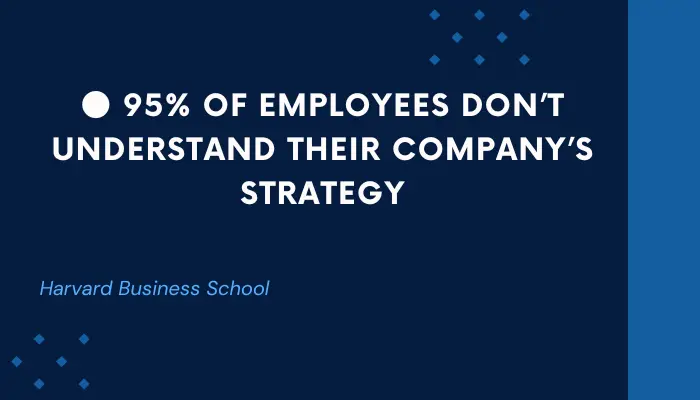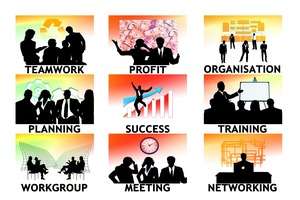Planning and organizing are part and parcel of each other. Both are fundamental management functions necessary for every project’s success. So you need to know what is The Relationship Between Planning and Organizing.
What is the relationship between planning and organizing?
The relationship between planning and organizing is a complementary one. It is impossible to benefit effectively from planning unless an organized process follows. Planning sets goals and strategies while coordinating the resources to achieve those goals effectively.

Planning is the prerequisite of the organizing process. In this article, we will discuss the meaning of planning and organizing, their relationship, and their importance in business. Let us begin.
💡 Helpful Statistics About Planning: ● Companies with written business plans grow 30% faster. ● Businesses with a plan are far more likely to get funding than those that don’t have a plan. ● 67% of well-formulated strategies failed due to poor execution. (HBR) ● 60–90% of strategic plans never fully launch. ● 48% of leaders spend less than a day on strategy each month. (HBS) ● 95% of employees don’t understand their company’s strategy. (HBR) ● 61% of executives feel they are not prepared for the strategic challenges. (HBR) ● 77% of successful companies translate their strategy into operational terms and evaluate it on a day-to- day basis. (Palladium)

Table of Contents
Explanation of the relationship between planning and organizing
In detail, we will explain the relationship between the two management functions, planning and organizing. But first, let’s repeat the words.
The relationship between planning and organizing is a complementary one. It is impossible to benefit effectively from planning unless an organized process follows. Planning sets the goals and strategies while coordinating the resources to achieve those goals effectively.
Let’s break that down:
We can break the relationship as mentioned above into three key phrases:
- Planning and organizing have a complementary relationship
- Not possible to benefit from planning unless followed by organizing
- Planning sets goals and organizing coordinates resources to achieve those goals
Now we will move toward a detailed explanation of these phrases to help you understand the topic in a wholesome manner.
Planning and organizing have a complementary relationship.
At times planning and organizing might seem very similar, but this is not the case. The first step organizations take for any project or business is planning. The planning function sets goals and defines strategies. Organizing is the second management function. It coordinates resources and events to achieve the goals set in the planning phase.
Every business has to go through these two stages, planning and organizing; planning is the first step then organizing begins.
You cannot start organizing before planning. Organizing must follow any planning process. These two functions have a complementary relationship. One cannot be done without the other.
Planning is useless if you don’t organize resources, events, and people. Likewise, organizing is futile if you start doing it before a plan.
To understand the relationship better, let’s first understand the meaning of planning and organizing.
What is the meaning of planning and organizing?
Planning is a continuous process in which management decides what to do, when to do it, how to do it, and who will do it. All these questions are answered. Planners decide things about the future before they happen. As planning is a futuristic process, you have to make decisions in the present about the future.
Planners have to define specific goals for the business, forecast the internal and external business factors, make alternate plans, evaluate those plans, select the best one, execute the plan, and monitor the plan. You can read the planning cycle in more detail in the article What Is the Planning Cycle? – The Best Guide.
Organizing is a management function coordinating events and resources to achieve objectives and implement plans. By resources, we mean physical, financial, or human resources. Combining all these resources will help you achieve results.
The organizing function is responsible for departmentalization. It groups similar activities and assigns those activities to relevant people. The sales department performs the activities related to sales. The marketing department conducts the activities related to marketing. When all departments perform their task, you will achieve results.
Organizing is also responsible for classifying authority. Who is answerable to whom? If you are concerned about a task, you will know whom to report to. You won’t waste time, energy, and resources going to different people. Therefore, organizing increases the efficiency of the process.
How planning leads to organizing?
Planning is the first stage where managers set a detailed action plan to achieve organizational goals. Everything is going on in your mind or on paper when planning. Nothing is actually taking place; it’s an intellectual process. Planning does not involve a lot of employees. Few top-level managers take part in planning.
Once the planning is complete, it is time to implement it. Whatever goals are defined in planning need to be achieved. The strategies are also set in the planning stage. It is time to communicate the plan to the rest of the employees, so everyone knows what they will do.
Communicate the plans, and tell every employee what they are responsible for. What is their role in achieving goals? Also, mention who the authority is. Who is accountable to whom? If you have an issue at work, to whom can you go? The person in authority should know the employees are working under him; he needs to supervise and guide them.
In organizing, a big task is divided into similar small chunks, specific tasks are assigned to the teams, and there is coordination among different teams or departments. Doing tasks in an orderly manner is also essential. You cannot begin with the eighth step. Hence, organizing takes care of the division of labor, authority, and coordination.
Can organizing be done before planning?
It is an interesting question; let’s answer this question with the help of a daily routine example. Assume you are going to bake a cake. What would be your first step?
Well, most definitely, the first step will be planning. You will plan:
- The size of the cake
- When to bake it
- For whom to bake
- When it needs to be served
- Do I have all the ingredients?
- Do I need help
All these things are going in your head. You are not actually doing anything, just planning.
The further step will be to organize everything you need to bake a cake. You will make a list of ingredients to buy from the supermarket, take out the ingredients you already have, maybe assign the shopping task to someone, and make yourself available during baking.
Now tell me can you buy the ingredients without knowing what you need? Absolutely not. You cannot organize before planning. But you can do it simultaneously. You plan in your head and simultaneously start organizing. You can plan and organize side by side.
It should be clear now, which comes first, planning or organizing? Planning comes first because you cannot do a thing without knowing how to do it.
Why is planning and organizing important?
Planning and organizing are essential to businesses because it gives them the right direction, resources, and coordination to reach goals. As accomplishing goals is the main objective of any organization, planning and organizing help achieve those goals.
Suppose a business wants to increase its sales by 20% in the next six months. The goal here is to increase sales by 20% in six months. Here planning and organizing plays a crucial role in accomplishing this goal.
Planning will decide how to achieve the target and increase sales. Who will perform which task? How much time is needed to do a particular job? When to do which task? How many people and finances are required? These aspects are settled in the planning stage.
Organizing will coordinate the resources and tasks to start the action plan. In this process of organizing, the delegation of authority, departmentalization of tasks, and coordination among teams will occur. Planning decides how much money is required, but assigning the money to the relevant personnel is part of organizing.
Organizing may even go back to planning if something doesn’t work out. Planning is a continuous process; whenever something goes wrong, revisit the plan and revise it for the better.
How can planning improve organizing?
Have you ever heard, “I wanted to do this task, but I ran out of time?” The problem here is that the employee wants to do the task, but he has not planned this task properly; that’s why he missed the opportunity. Planning plays a key role in the success of an organization.
Planning improves the organizing function when the plan is thorough and considers risks and opportunities. It guides you about the priority of the tasks. You know which tasks can wait and which task needs urgency. Now, you can organize tasks and assign them to the employees according to priority. Organizing resources will increase the efficiency of the organization.
As no company has unlimited resources, coordinating them with the project that needs them the most will help the business attain its goals. Resources are not necessarily financial; they can be human resources, time, space, or equipment.
Planning will also improve organizing in terms of time management. When you know you have to complete this task in two days, you organize your activities according to that time. You may have to delegate a chunk to another person to complete the task on time. Because of your planning, you can organize your tasks better.
Conclusion
Planning is the primary management function that sets an organization’s overall goals and devises a plan to achieve those goals. Organizing is the second management function which helps coordinate the humans and other resources to enact the plan.
The relationship between planning and organizing is a complementary one. It is impossible to benefit effectively from planning unless an organized process follows. Planning sets goals and strategies while coordinating the resources to achieve those goals effectively.
Organizing adds efficiency to the process of implementing the plan. It organizes everything equipment, money, people, time, and space to start the action plan.
Planning leads to organizing; without planning, it is not possible to organize. You cannot organize if you don’t know what to do. One can do planning and organizing simultaneously. But it is not the case when planning on a large scale.
Planning and organizing go hand in hand; both are pivotal for achieving organizational goals. You can read the article What Is the Purpose of Organizing in Management? to get more insight into the topic.

